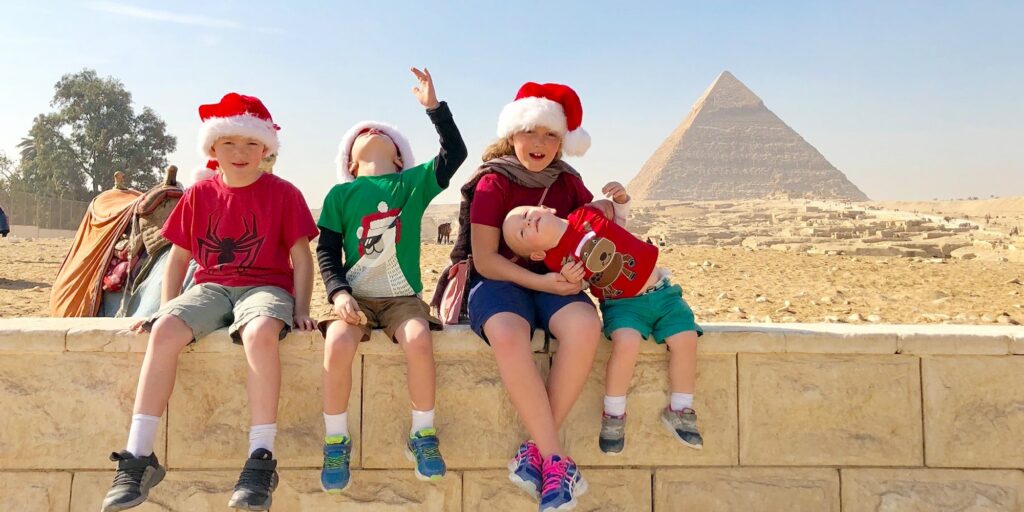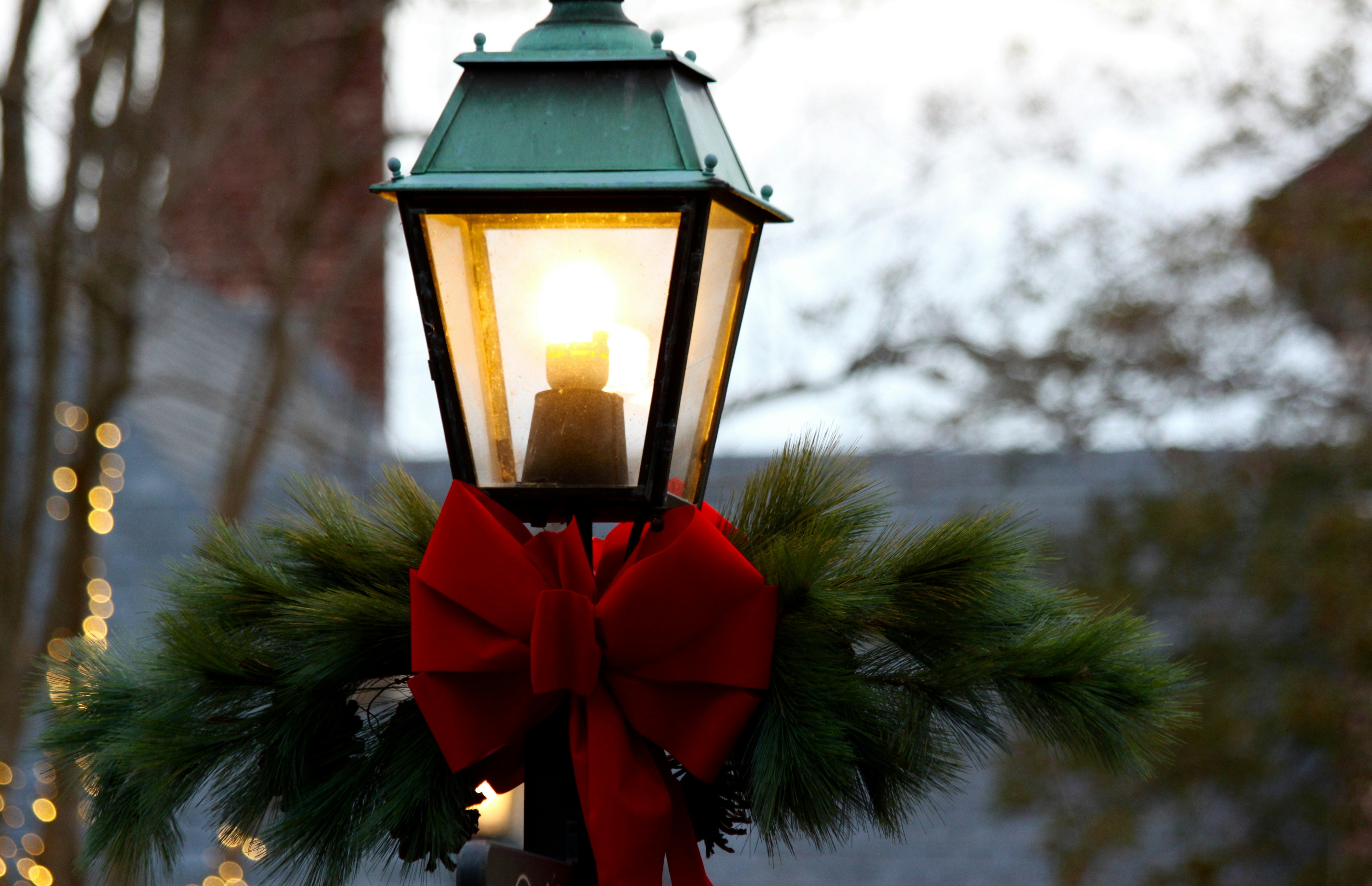Exploring the unique customs and traditions of Christmas in Egypt offers you a glimpse into a culturally rich celebration that transcends the ordinary. As you learn about how the Coptic Orthodox Church marks the holiday on January 7th, you’ll discover a community bonded through a shared 40-day fast, culminating in a joyous feast where meat dishes like Futari unveil their significance. This season of togetherness is highlighted by families coming together to decorate Christmas trees and exchange heartfelt greetings of “Aid Milad Mageed,” enveloping you in the warmth of Egyptian hospitality.
Embark on a journey that not only enhances your understanding of how Christmas is celebrated in an Arabic-speaking country but also deepens your Arabic language skills. Whether you’re a beginner or an enthusiast looking to challenge your listening comprehension, this insight into Egyptian traditions provides a pathway to mastering the nuances of Arabic vocabulary. With cultural tips and essential phrases, your journey into the heart of how Egyptians embrace Christmas is both an educational and enriching experience.
Understanding Christmas in Egypt
When you think about Christmas, Egypt might not immediately come to mind. However, this celebration holds a beautiful and unique place in Egyptian culture, with deep historical roots and religious significance, especially among the Coptic Orthodox Christians who form a significant portion of the Christian community in Egypt.
Historical background of Egyptian Christmas
The history of Christmas in Egypt is intertwined with the story of Christianity itself. Traditions and practices have evolved from the early days of Christianity. As one of the oldest Christian communities in the world, Egyptian Christians, particularly the Copts, have celebrated Christmas since the early centuries. The Coptic Orthodox Church plays a pivotal role in maintaining these traditions. However, it wasn’t until more recent centuries that Christmas began to include elements of modernity and global influences. Understanding this historical backdrop helps you appreciate how Egyptian Christmas has developed its own unique identity.
Religious significance in the Coptic Orthodox Church
For the Coptic Orthodox Church, Christmas is profoundly religious. It celebrates the birth of Jesus Christ, which is seen as a pivotal moment of divine intervention in human history. The spiritual weight of this event gives cause for deep reflection and celebration. Coptic Christians prioritize the religious aspects of Christmas, with church services and spiritual preparation often taking precedence over secular festivities. The birth of Christ is viewed not only as a historical event but also as an ongoing presence in their lives, encouraging followers to embrace Christian teachings throughout the year.
Differences from Western Christmas celebrations
While Western Christmas is often characterized by vibrant commercialism and cultural elements like Santa Claus, Egyptian Christmas remains deeply rooted in religious tradition. The absence of some Western secular elements allows the focus to remain on religious customs, reflections, and community. You may notice that Egyptian Christmas doesn’t emphasize consumerism to the same extent; instead, the communal worship and family gatherings hold the highest importance. This simplicity underscores the contrasts and highlights the cultural variance in holiday celebrations around the world.
The Julian Calendar: Key to Egyptian Christmas Date
One of the most distinctive aspects of Christmas in Egypt is its date. Unlike many parts of the world that celebrate Christmas on December 25th, Egyptian Christmas falls on January 7th. This shift is due to the use of the Julian calendar.
Explanation of the Julian calendar system
The Julian calendar, introduced by Julius Caesar in 45 BC, predates the Gregorian calendar used by the majority of the world today. It is longer by about 11 minutes, which over centuries has added up to a significant shift in date. While most of the world transitioned to the Gregorian calendar in the 16th century, the Coptic Orthodox Church continues to adhere to the Julian calendar for its religious festivities.
Importance in the Coptic faith
For the Coptic Orthodox Church, adhering to the Julian calendar is both a matter of preserving tradition and maintaining religious integrity. It symbolizes the Church’s steadfastness in upholding ancient customs in the face of modern change. The Julian date for Christmas is respected and valued by followers, as it represents continuity with the past and devotion to their faith.
How January 7th became Christmas Day in Egypt
January 7th became the official day for celebrating Christmas in Egypt due to the transition discrepancies between the Julian and Gregorian calendars. As December 25th in the Julian calendar corresponds to January 7th in the Gregorian system, the Coptic Orthodox believers celebrate on this day to stay true to their traditional timeline. For you, this means experiencing Christmas at a different time, enjoying festive moments when others may have returned to their daily routines.

This image is property of i.ytimg.com.
Coptic Christmas Fasting Rituals
The period leading up to Christmas in Egypt is marked by rigorous spiritual preparation through fasting, which plays a crucial role in the religious life of the Coptic Orthodox Christians.
The 40-day fast leading up to Christmas
Similar to the fasting period before Easter, known as Lent, Coptic Orthodox Christians observe a 40-day fast called the ‘Advent Fast’ or ‘Christmas Fast.’ Starting on November 25th, this fast involves abstaining from animal products like meat and dairy. This spiritual discipline allows you to purify yourself and prepare your heart to commemorate the birth of Christ.
Types of food consumed during the fasting period
During the fasting period, the diet consists primarily of vegan foods. This often includes a variety of lentils, beans, vegetables, and grains prepared in traditional Egyptian ways. Such meals are not only healthy but also offer an opportunity to savor the tastes of Egypt in their purest forms, connecting you with the land’s history and people.
Spiritual significance of the fast
Fasting is viewed as a means of spiritual cleansing and focusing on the divine. It’s a time for increased prayer, reflection, and community service. Instead of merely a dietary restriction, the fast is a chance for you to grow closer to God, embrace humility, and prepare yourself spiritually for the joyous celebration of Christmas.
Christmas Eve Midnight Mass
One of the most anticipated parts of Egyptian Christmas is the Midnight Mass on Christmas Eve, which is a moving ceremony filled with devotion and community spirit.
Details of the ceremonial practices
The Midnight Mass is a solemn yet joyous event that begins late in the evening and extends well past midnight. The service is conducted in the ancient Coptic language as well as Arabic, offering rich traditions that echo centuries of faith and history. The ceremony typically includes the Divine Liturgy, which is both reflective and celebratory.
The role of hymns and liturgical readings
Hymns and liturgical readings are integral to the Midnight Mass. They are beautiful, ancient Coptic chants that bring the stories of the Bible to life and fill the church with a resonant spiritual presence. Through these hymns, you’re invited to join in the sacred tradition, experiencing the emotional and spiritual dimensions of Christmas.
Attire and atmosphere inside the churches
The atmosphere inside the churches during Midnight Mass is one of reverence and warmth. Parishioners, dressed in their best attire, fill the church with anticipation and joy. Candles flicker, casting soft light over icon-adorned walls, and a sense of serenity envelops everyone present. It’s a multi-sensory experience that allows you to fully immerse yourself in the spiritual celebration.
This image is property of images.unsplash.com.
Traditional Christmas Day Activities
After the spiritual experience of the Midnight Mass, Christmas Day in Egypt is marked by a range of joyous activities that center around family, community, and traditions.
Family gatherings and community events
Christmas Day is predominantly regarded as a time for family and communal bonding in Egypt. Families reunite, share traditional meals, and engage in meaningful conversations. It’s common to find communities gathering for public festivities, outdoor picnics, or simply enjoying each other’s company. For you, being with loved ones on this day reinforces the significance of togetherness and shared heritage.
Exchange of gifts and cards
While gift-giving isn’t as pronounced as in Western cultures, Egyptians do exchange modest presents and heartfelt cards. The exchange is symbolic of love, blessings, and good will. As you give or receive gifts, it’s a reminder of the joy that comes from giving and the warmth that a thoughtful gesture can bring.
Commonly used Christmas greetings in Arabic
On Christmas Day, greetings like “Eid Milad Majid” (عيد ميلاد مجيد) meaning “Merry Christmas” echo in homes and streets. Using this greeting connects you with locals on a cultural level and adds to the festive atmosphere in celebrating Christmas.
Christmas Food Customs in Egypt
Food takes center stage during Christmas celebrations in Egypt, embodying the spirit of festivity and continuation of traditions.
Popular dishes like Fattah and Fitari
On Christmas Day, after the long fast, traditional dishes like Fattah—a layered dish of rice, bread, and meat—and Fitari, a meat dish, are savored. These meals are rich, filling, and reflective of Egyptian culinary heritage. They symbolize the end of the fasting period with a feast that is both a physical and spiritual fulfillment.
The transition from vegan to meat dishes post-fast
The shift from a restrictive vegan diet during the fasting period to indulging in sumptuous meat dishes on Christmas Day is marked and significant. It celebrates the breaking of the fast, a moment of joy and liberation, allowing you to partake in a meal that satisfies not just your hunger but also affirms the completion of a spiritual journey.
Significance of communal meals
Sharing meals with family and friends during Christmas is a deep-rooted Egyptian tradition. It signifies unity, solidarity, and the continuity of heritage. Gathering for communal meals underscores the importance of community bonds and reinforces the social fabric that holds families together.
This image is property of images.unsplash.com.
Decorative Traditions
Christmas decorations add color and charm to Egyptian households, infusing the season with warmth and delight.
The role of Christmas trees in Egyptian homes
While Christmas trees are more common in Western traditions, they have found a place in many Egyptian homes too. Often adorned with colorful ornaments and lights, these trees represent a blend of tradition and modernity, offering a familiar sight of holiday cheer.
Symbolism and personalization of decorations
Decorations in Egyptian homes may also include handmade items that reflect personal stories or family traditions. The colors and arrangements symbolize light, hope, and celebration, making your home feel more inviting and festive during the season.
Influence of Western decorations
There is an evident influence of Western decorations in Egyptian Christmas, merging local customs with global trends. This blend brings uniqueness to Egyptian households, providing an opportunity to celebrate the holiday with a touch of international flair without losing the underlying cultural spirit.
Impact of Globalization on Egyptian Christmas
In today’s interconnected world, globalization has influenced Christmas celebrations in Egypt, intertwining local traditions with global customs.
Adoption of global Christmas trends
With globalization, aspects like grand musical performances, international cuisine, and more extensive holiday marketing have seeped into Egyptian Christmas. These trends offer you diverse experiences and an opportunity to engage with Christmas in a way that resonates with the global community.
Integration with local customs
Despite the influx of global trends, Egyptian Christmas has managed to integrate these in a way that complements rather than overshadows traditional customs. This integration ensures that celebrations remain meaningful and reflective of the local culture, providing a unique, enriched festive experience for you to enjoy.
Media and entertainment influence
Media and entertainment have amplified the reach of Christmas celebrations, making them more visible and accessible. Through films, music, and online platforms, you can connect with Egyptian Christmas culture from anywhere in the world, bringing the joy and essence of the holiday into diverse spheres of life.
This image is property of images.unsplash.com.
Secular Versus Religious Celebrants
While Christmas in Egypt is primarily a religious festival, there is room for secular celebrations, accommodating different styles and preferences.
Differences in celebration styles
Secular celebrations may focus more on gatherings, meals, and gifts, while religious celebrations deeply engage with the spiritual significance of Christmas. Each style allows you to experience the holiday in a way that aligns with your beliefs and values, highlighting the personal variations in observing meaningful traditions.
Inclusive community events
To foster unity and cultural exchange, many Egyptian communities host inclusive events where both secular and religious aspects are celebrated. These gatherings offer a chance for you to connect with diverse groups, celebrating what Christmas means collectively, while respecting individual differences.
Cultural cohesion among diverse communities
Christmas serves as a bridge, bringing together Egypt’s various social and religious communities. By participating in Christmas celebrations, you contribute to a shared sense of cultural cohesion, fostering mutual understanding and harmonious coexistence among individuals from different backgrounds.
Conclusion
Reflection on the uniqueness of Egyptian Christmas
Christmas in Egypt represents a melding of ancient traditions with modern influences, providing a unique tapestry of culture and devout spirituality. By partaking in this celebration, you gain insight into how customs can evolve while retaining their core essence, offering a sense of connection and continuity.
Potential changes and future trends
As Egypt continues to engage with global cultures and dynamics, Christmas celebrations might further evolve, potentially incorporating even more elements from broader global practices. You, as part of this ongoing dialogue, play a role in shaping how these traditions adapt to changing times.
The enduring cultural significance of Christmas in Egypt
Despite these changes, the essence of Christmas in Egypt remains steadfast. For Egyptians, both locally and worldwide, Christmas symbolizes faith, community, and hope, providing a moment each year to reflect, celebrate, and look towards the future with optimism. This enduring cultural significance ensures that the spirit of Egyptian Christmas continues to inspire and connect you to the deeper aspects of life and spirituality.




